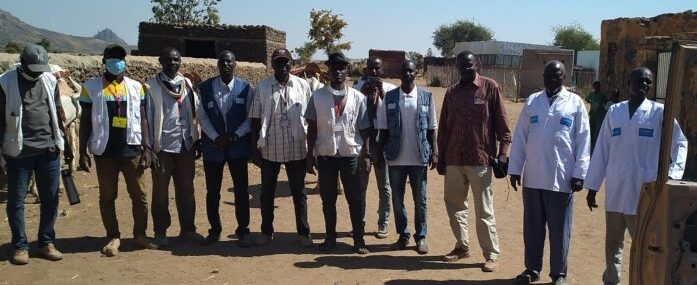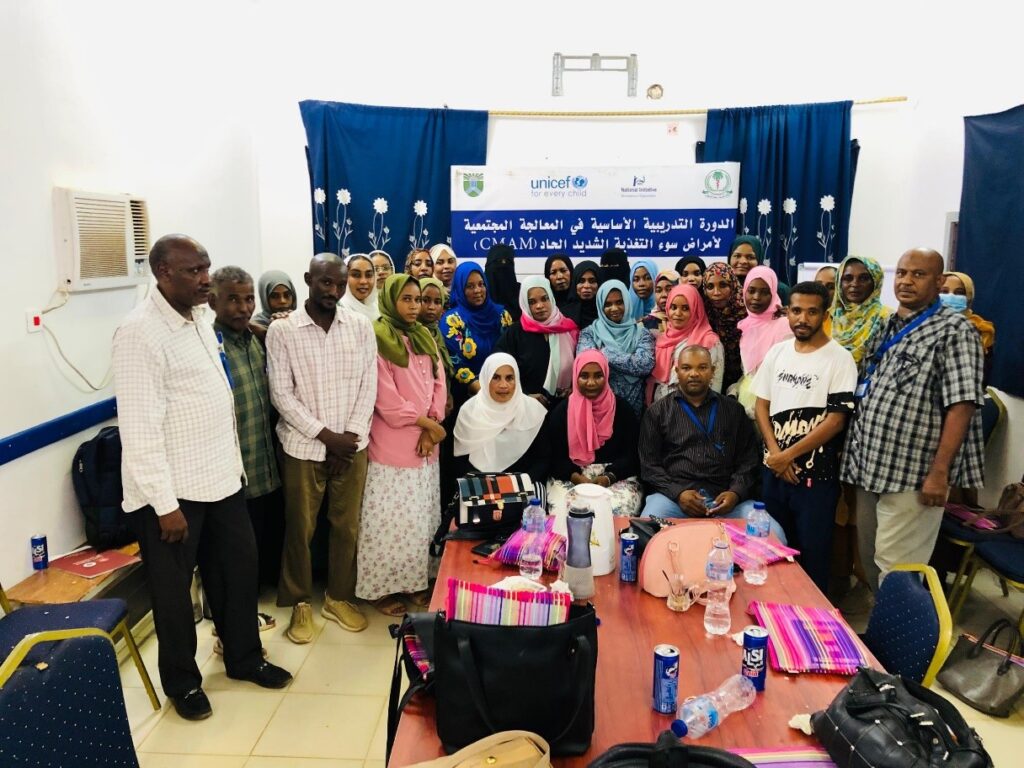Hussein Adam Ahmed is Darfurian a 49- year-old man from South Darfur, a father of five boys and four daughters staying in one house , whose are affected by current Sudan conflict while displaced from his home to east while his home been looted and after year a half returned to his home, but there no thing to doing as previous working at market and after war lost everything, and there’s no labor work to gain wage, while the main sources is depend on agriculture production, Sorghum and millet the main staple food crops across Darfur region, and Hussein this year became one of small farmer who supported by CHF project, at the beginning he faced challenge of get a piece of land, as pervious rental land for cultivation along a percentage payback scheme, like other an unowned land for farming, eventually, he was scrapped in favor of a per-season rental scheme of 10 Fadden, locally known as (makhmas) a little bit big then Fadden, on which he grows various crops, such as Sorghum, millet , Okra, Cowpeas, Watermonel and vegetables. In Darfur agriculture is the main source of income for over 70% of the population, and 80% of the workforce is employed in agriculture, Hussein is one of the project beneficiaries and project funded of CHF, Implemented by NIDO its partnership with ALIGHT international, the project introduced improved, certified seeds to farmers to moving away from traditional local seeds, whereby provided tools and seeds to improve their crop production yields, Another successful aspect of CHF agriculture interventions has been to encourage and support the sowing of varies certified- improved seeds,
Hussein is always loved agriculture and after got plot of land, and I had to turn it into a productive farm,” Hussein shared. “At the time, I didn’t have any money to start with, during war, it’s very difficult to get loans from banks when you have nothing to guarantee it, being IDP and a poor, Despite the lack of resources to rent, But I always believed in God, to find someone to support even with Seeds and tool to clear the land for planting and start producing something.” Eventually, in kind supported by organization and received agriculture extension session on agriculture related issues and grow varies crops, However, he assessed the markets in Okra Status and realized that okra supply was unstable during earlier times of scarcity. For example, during periods of heavy rains, there was not enough okra in the market to meet demand, along with cucumbers, watermelons, and peanuts, which are usually cash crops. These days, Hussein and his family members collect 3 to 4 bags of okra from the farm daily and sell some of them. What he earns the first time is return money that borrowed during the beginning of the rainy season while planting. This now saves 280 Sudanese pounds, since the harvest has been going on for three weeks, where able them to sell a portion of the crop to buy other needs such as sugar and meat to supplement his family’s diet and also some shoes and clothes for the children and other cuts, dry it for selling later after rain season over, in order for them to sell it at premium price, in terms of Food Security impact against Okra farming which helps families supplement their food rations and improves overall household nutrition, especially for children and its economic opportunity for then earn cash from selling their okra, which they use for school fees, buying essential supplies, and savings, contributing to their financial independence.
He has ambitious plans for the future that will make his efforts a benchmark for agricultural success in the area and he focus is to grow and to increase his agricultural business activities in the near future, and leading to increased profits from okra sales, while other initiatives focus on teaching sustainable practices and sharing knowledge to overcome challenges like poor harvests-n he said.
Dry okra








